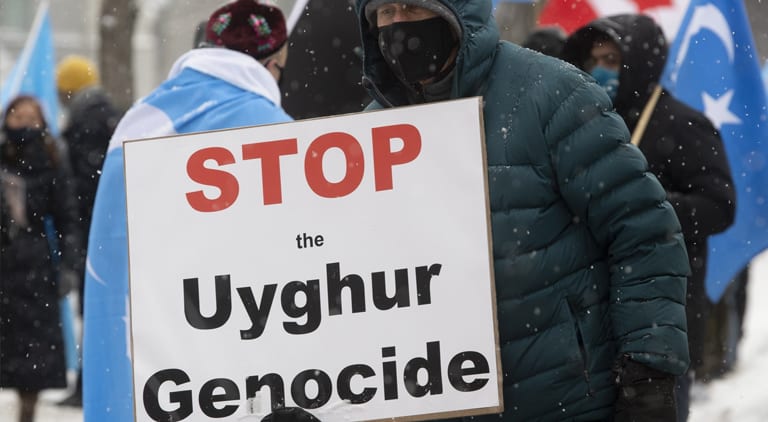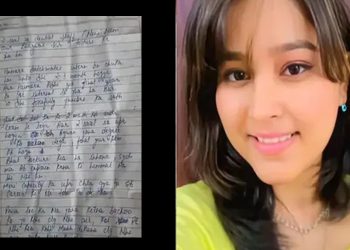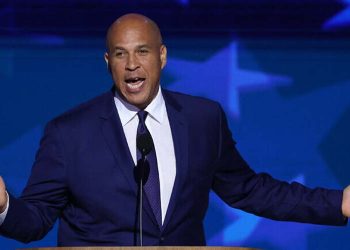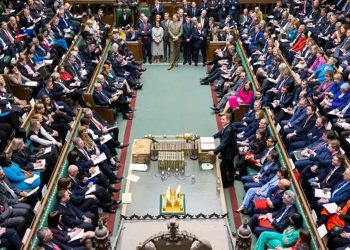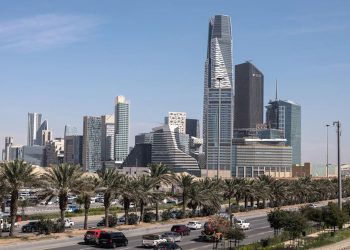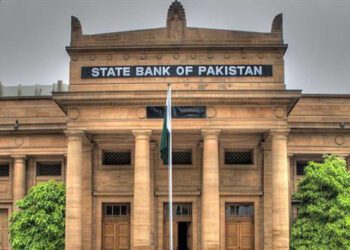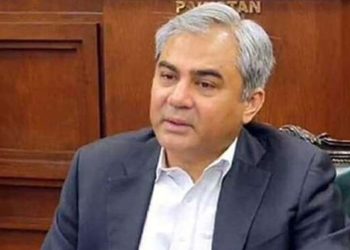BRUSSELS: The European Union, United States, Britain and Canada imposed fresh sanctions on Chinese officials over the crackdown on Uighurs and other Muslim minorities, and Beijing responded by hitting Europeans with immediate tit-for-tat measures.
Brussels, London and Ottawa blacklisted former and current officials in the Xinjiang region – Zhu Hailun, Wang Junzheng, Wang Mingshan and Chen Mingguo – over alleged abuses.
The coordinated strike also targeted the state-run Xinjiang Production and Construction Corps. Washington, which had sanctioned two of those officials in July 2020, added the other two to the list.
“Acting together sends the clearest possible signal that the international community is united in its condemnation of China’s human rights violations in Xinjiang and the need for Beijing to end its discriminatory and oppressive practices in the region,” Britain’s foreign ministry said.
US Secretary of State Antony Blinken said China “continues to commit genocide and crimes against humanity in Xinjiang” and called on Beijing to “bring an end to the repression of Uighurs”.
Canadian Foreign Minister Marc Garneau said the sanctions underscore “grave concerns with the ongoing human rights violations” in Xinjiang.
The symbolic move is the first time Brussels and London have targeted China over accusations of widespread abuses and forced labour in Xinjiang. They last hit Beijing over human rights breaches when they imposed an arms embargo in 1989 after the Tiananmen Square crackdown.
Beijing slammed the EU measures and immediately hit back by announcing entry bans on 10 Europeans including five members of the European Parliament as well as two EU bodies and two think-tanks.
China’s foreign ministry said the EU’s move “grossly interferes in China’s internal affairs” and “severely undermines China-EU relations”. The retaliatory strike drew condemnation from across the political spectrum in the EU. “Rather than change its policies and address our legitimate concerns, China has again turned a blind eye and these measures are regrettable and unacceptable,” EU foreign policy chief Josep Borrell said after a meeting of foreign ministers.
The Dutch government summoned the Chinese ambassador after one of its national lawmakers was among those sanctioned. “China’s decision is a totally unjustified response,” Prime Minister Mark Rutte said.
In France, the foreign ministry slammed the sanctions and, in a sign of rising tensions, summoned the Chinese ambassador to Paris over “unacceptable comments” he made in recent days.
Rights groups believe at least one million Uighurs and other mostly Muslim minorities have been incarcerated in camps in the northwestern region, where China is also accused of forcibly sterilising women and imposing forced labour.
China has strongly denied allegations of forced labour involving Uighurs and says training programmes, work schemes and better education have helped stamp out extremism in the region.
Biden has been looking to marshal a united front against Beijing as he drops the unilateral approach of his predecessor Donald Trump. Blinken is currently on his way for a three-day visit to Brussels, during which he will discuss foreign policy with EU chief Ursula von der Leyen. He exchanged fiery barbs with Chinese officials during their first high-level talks last week, amid rising tensions between the rival world powers.
The European investment pact would eventually need to be approved by the European parliament — but there has been growing opposition to signing off on the deal.
Parliament chief David Sassoli insisted the Chinese move “will have consequences”. The measures from the EU were part of a package of human rights sanctions that also included figures in Russia, North Korea, Eritrea, South Sudan and Libya.







